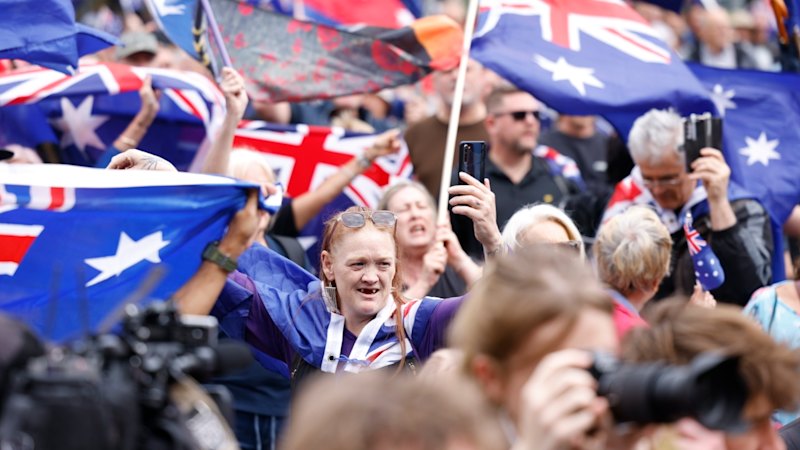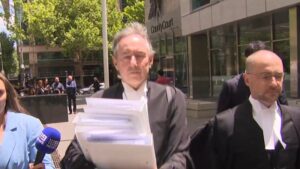
Protests in Melbourne’s Central Business District (CBD) have escalated in recent months, reflecting deep societal divisions that emerged during the COVID-19 pandemic. Once lauded as the most liveable city in the world, Melbourne now faces challenges to its civic spirit, tolerance, and collective empathy. The rise in confrontational demonstrations has prompted calls for a structured approach to protests, aiming to restore balance and safety in public discourse.
The pandemic profoundly impacted Melbourne, leading to extended lockdowns that were initially supported by many. These measures were seen as essential in safeguarding the health system and the community. However, the unintended consequences have become increasingly evident. The mental toll, fractured trust, and heightened polarization have left many residents feeling disillusioned. As a result, Melbourne’s streets have transformed into venues of outrage rather than spaces for constructive dialogue.
Heavy police presence has become a common sight as opposing protest groups clash in the CBD. The freedom to protest remains a cornerstone of democracy, crucial for movements throughout history, such as women’s rights and environmental activism. Yet, the current landscape reveals a troubling trend where peaceful assembly is often overshadowed by intimidation and fear.
Implementing a Permit System for Protests
To address these issues, the introduction of a protest permit system in Melbourne is proposed. This system would not aim to silence dissent but rather ensure fairness, safety, and accessibility for all citizens. Protests that disrupt major city arteries, obstruct public transport, or gather around significant landmarks should be regulated similarly to other public events, such as marathons and festivals.
Designated areas for demonstrations could be established in public spaces that are both accessible and symbolic of democratic engagement. Locations like the Fitzroy Gardens, outside 1 Treasury Place, Flagstaff Gardens, and the lawns around the Arts Centre could serve as ideal gathering spots. Each of these areas is connected to public transport and visible, ensuring that demonstrators can express their views without causing widespread disruption or intimidating bystanders.
It is essential to note that protected industrial action should remain exempt from this permit requirement. The right of workers to advocate for fair pay and safe working conditions is fundamental to democracy and should not be stifled.
Restoring Civic Trust and Safety
The ongoing protests have raised serious concerns about safety for various communities within Melbourne. Instances of intimidation directed at Jewish residents and law enforcement officials have underscored the urgent need for a solution. When demonstrations related to international conflicts create fear in local neighborhoods, it signals a failure in the social compact that once defined Melbourne.
The social fabric of the city, tested by the pandemic, has revealed underlying fractures. Citizens are grappling with a growing sense of distrust towards both the government and fellow residents. While some view the government as a threat, others see it as a necessary ally, leading to a cycle of blame and division.
Rebuilding trust within the community is imperative. This effort begins with establishing a framework that upholds both freedom of expression and public safety. A permit system for protests would facilitate coordination among police, local councils, and the public, allowing for better planning while safeguarding the rights of demonstrators.
Cities such as London and New York have successfully implemented similar systems that balance activism with accessibility. Melbourne can follow suit, recognizing that democracy requires both structure and spirit. Without this balance, the risk of normalizing chaos increases, potentially alienating the silent majority and fostering disengagement.
Melbourne, once a city known for its vibrant civic life and cultural richness, can reclaim its identity. This transformation demands courage and a willingness to listen, fostering respectful disagreement while prioritizing decency. The aim should be to empower those who seek to voice their opinions without instilling fear in others.
The path forward involves ensuring that democracy serves to protect all citizens, nurturing an environment where individuals feel safe to express themselves. If there are protests to champion, let them be those of the silent majority—the residents who yearn for respect, safety, and a democratic process that uplifts rather than intimidates.
Philip Dalidakis, a former minister in the Daniel Andrews government from 2015 to 2019, currently serves as managing partner at consulting firm Orizontas. As Melbourne navigates this challenging landscape, the city stands at a crossroads, with the potential to emerge stronger through collaboration and mutual respect.







